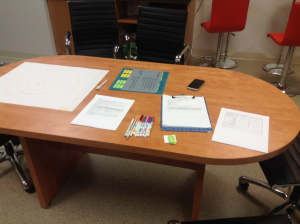26 Jun 2014
I did it. This spring I went out and spoke to people. Real, actual, breathing human beings. In the flesh.
I am really interested in how people are (or are not) making use of social media tools in their everyday political lives. I am particularly interested in those politicos who can’t seem to get enough information about current affairs and always seem to be in the know – but – who are not professional political players. I am talking about opinion leaders. They are the ones always telling you about what the next important policy decision is, how Canada should be dealing with climate change, whether a gun registry is good or bad, etc..
So, this spring I left my cozy (read: overly hot and poorly ventilated) Oxford workspace and headed home. I traveled across Canada to speak to 23 opinion leaders from four different cities/areas: Halifax, Toronto, Edmonton, Vancouver/Victoria. Here are some things I learned:
- Fieldwork is exhausting, possibly more exhausting than the other kind of work on fields I do (which is really saying something if you have ever played 80 minutes of rugby). I made the mistake of thinking, oh, my interviews should take about 1.5-2 hours, I’ll book off 2.25 hours and be fine. No. I needed 3 hours in the room and then a good long run (or Netflix marathon) to recuperate after each.
- People like to tell stories, even when they have nothing to do with your questions. Some times these stories are really interesting. Some times you inadvertently find out that a person’s everyday political chat has been digital since the 80s and that your interviewee is part of a discussion group that transitioned from BBS to listserv to private Facebook group. Other times you learn a person recently lost their main weed supplier.
- Prepare to be flexible. Times change right up to the last minute, technology fails right before you are about to start the interview, people just can’t wrap their head around what you are trying to get them to do – there are a lot of reasons to be very prepared for the interview to take a very different path than originally planned. Rather than an interview schedule and notes sheet I thought of the paper on my clipboard as a data container. The pages were partitioned according to the information I needed to gather so that if things went off track I knew exactly which holes I needed to go back and fill before time ran out.
With the interviews complete I am now diving into data analysis. I’ve got NVivo for Mac set up and the first of my interviews have been coded. The schedule is, of course, a bit of a mess at this point – but the initial themes are intriguing and everyday there is very tangible progress to be chronicled.
It is a very different feeling than days of familiarizing your self with the literature. It is exhilarating.
